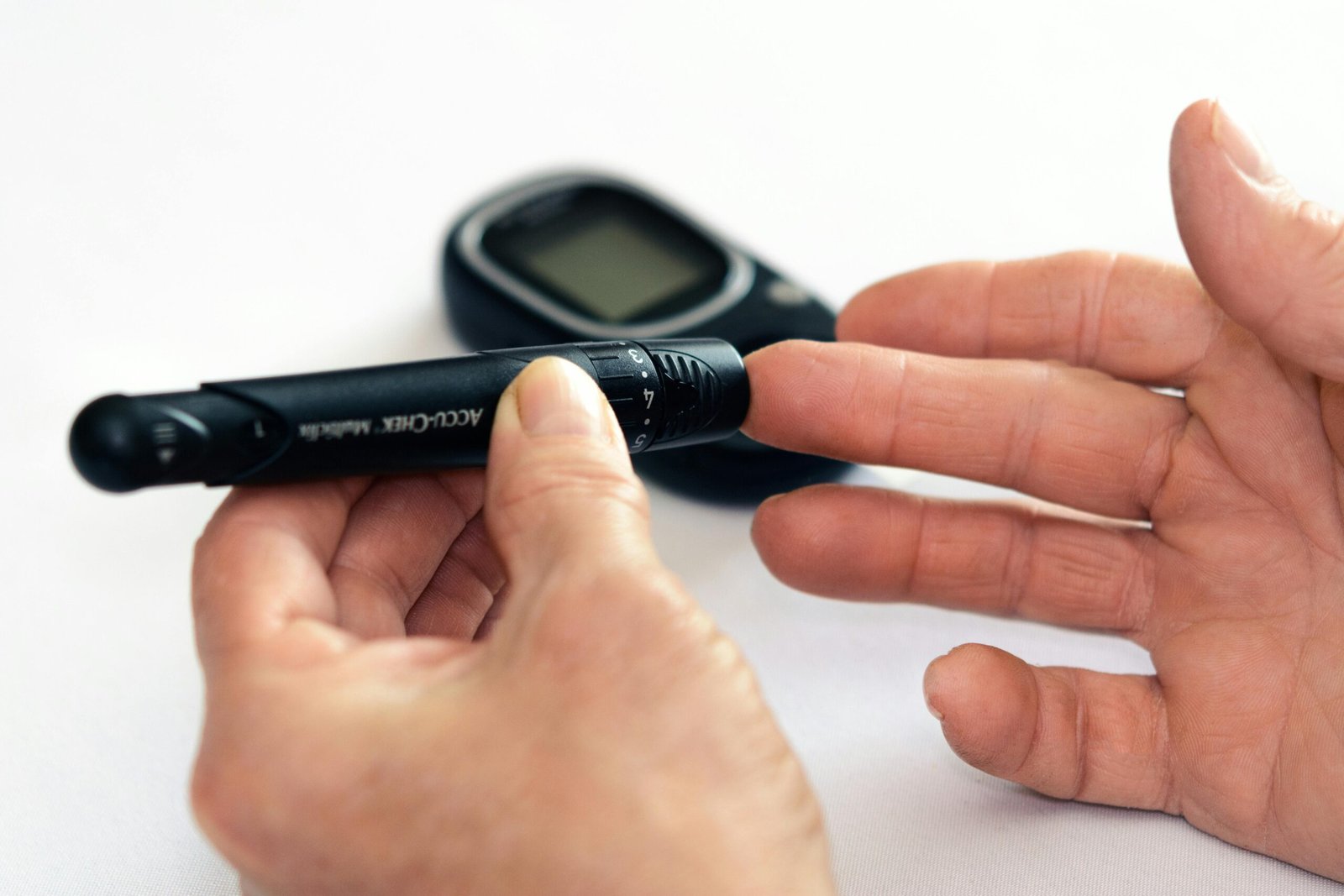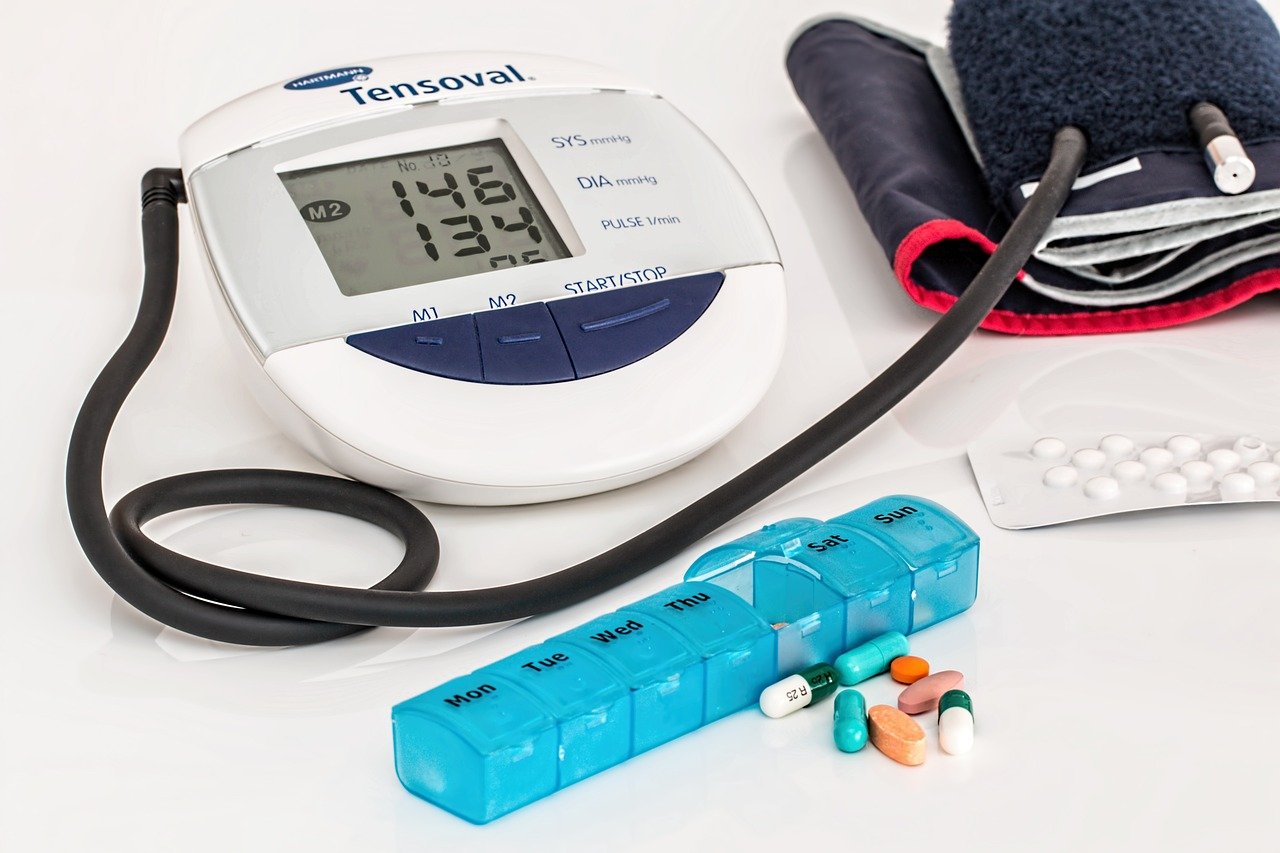Early Signs of Diabetes in Women: What to Watch For 2024

Early Signs of Diabetes in Women
Introduction
Diabetes is a growing concern worldwide, and its early detection is crucial, especially for women. Understanding the early signs can lead to timely diagnosis and management, significantly improving quality of life. This article delves into the early signs of diabetes in women, helping you recognize symptoms and take action.
Understanding Diabetes
What is Diabetes?
It occurs when the body cannot produce enough insulin or use it effectively, leading to an accumulation of glucose in the blood.
Why Women Are at Risk
Understanding the various risks that women face is crucial in addressing and mitigating these issues. Women encounter a unique st of challenges that can impact their health, socioeconomic status, safety, and overall well-being. By examining these factors, we can develop strategies to support and protect women better.
Health Risks
Reproductive Health
Maternal Mortality
Maternal mortality remains a significant concern globally, especially in developing countries. Many women lack access to proper prenatal and postnatal care, which increases the risk of complications during childbirth. Addressing this issue requires improving healthcare infrastructure and ensuring that all women have access to necessary medical services.
Access to Contraception
Limited access to contraception can lead to unintended pregnancies, which can affect a woman’s health and socioeconomic status. Empowering women with the knowledge and resources to control their reproductive health is vital for their well-being.
Mental Health
Depression and Anxiety
Factors such as hormonal changes, societal pressures, and trauma can contribute to these conditions. Providing mental health resources and reducing stigma around mental health issues are essential steps in supporting women’s mental well-being.
Postpartum Depression
Increasing awareness and providing support for new mothers can help mitigate the impact of this condition.
Chronic Diseases
Heart Disease
Raising awareness about women’s heart health and promoting preventive measures is crucial.
Osteoporosis
Ensuring that women have access to bone health screenings and information about maintaining bone health can help reduce the risk of osteoporosis-related fractures.
Cancer
Breast Cancer
Early detection through regular screenings and awareness about risk factors can significantly improve survival rates.
Cervical Cancer
Cervical cancer can often be prevented through vaccination and regular screenings. Promoting these preventive measures can help reduce the incidence of cervical cancer.
Socioeconomic Risks
Gender Pay Gap
Income Inequality
The gender pay gap remains a pervasive issue, with women earning less than men for the same work. This disparity affects women’s economic stability and their ability to invest in their health and well-being.
Career Advancement
Women often face barriers to career advancement, such as discrimination and lack of mentorship opportunities. Supporting women’s career growth and ensuring equitable opportunities are essential for closing the gender pay gap.
Educational Disparities
Access to Education
In many parts of the world, girls and women have less access to education than their male counterparts. Education is a critical factor in empowering women and reducing their risks.
Literacy Rates
Higher literacy rates are associated with better health outcomes and economic opportunities. Improving access to education can help increase literacy rates among women.
Violence and Safety Risks
Domestic Violence
Intimate Partner Violence
Intimate partner violence is a widespread issue that affects women across all socioeconomic backgrounds. Providing resources and support for survivors is crucial in addressing this problem.
Support Systems
Building robust support systems, including shelters and hotlines, can help women escape abusive situations and rebuild their lives.
Sexual Violence
Rape and Assault
Sexual violence, including rape and assault, remains a significant risk for women. Ensuring legal protections and providing support for survivors are vital steps in combating this issue.
Legal Protections
Strengthening legal protections and ensuring that perpetrators are held accountable can help reduce the prevalence of sexual violence.
Cultural and Societal Risks
Gender Discrimination
Workplace Discrimination
Women often face discrimination in the workplace, which can hinder their career growth and economic stability. Promoting gender equality and enforcing anti-discrimination laws are necessary to address this issue.
Societal Norms
Societal norms and expectations can limit women’s opportunities and perpetuate gender inequality. Challenging and changing these norms is essential for creating a more equitable society.
Body Image Issues
Media Influence
The media often promotes unrealistic body standards, which can lead to body image issues and eating disorders among women. Promoting diverse and realistic representations of women in the media can help address this problem.
Eating Disorders
Eating disorders are more prevalent among women, often linked to societal pressures and body image issues. Providing support and resources for those affected can help mitigate the impact of these disorders.
Common Early Signs of Diabetes in Women
Frequent Urination
One of the earliest and most common signs is frequent urination. High blood sugar levels cause the kidneys to work harder to filter and absorb the excess sugar, leading to more frequent trips to the bathroom.
Excessive Thirst
Along with frequent urination, excessive thirst is another early symptom. As the body loses more fluids, it triggers a strong sense of thirst to replenish the lost water.
Extreme Fatigue
Feeling unusually tired despite adequate rest can be a sign of diabetes. When the body can’t use glucose for energy efficiently, it can lead to persistent fatigue.
Skin-Related Symptoms
Darkened Skin Patches
This can be an early indicator of insulin resistance.
Slow-Healing Wounds
High blood sugar levels can impair circulation and affect the body’s ability to heal wounds. Women may notice that cuts and bruises take longer to heal.
Frequent Infections
Diabetes can weaken the immune system, making women more susceptible to infections, particularly urinary tract infections and yeast infections.
Hormonal and Reproductive Health Symptoms
Understanding hormonal and reproductive health is crucial for overall well-being. Women often experience a range of symptoms related to their menstrual cycle, hormonal imbalances, and reproductive health issues. By recognizing these symptoms early, you can seek appropriate medical care and improve your quality of life.
Menstrual Health
Irregular Periods
Causes of Irregular Periods
Irregular periods can be caused by various factors, including stress, significant weight loss or gain, and underlying medical conditions like polycystic ovary syndrome (PCOS) or thyroid disorders. Hormonal imbalances are often at the root of irregular menstrual cycles.
Impact on Health
Irregular periods can affect fertility and overall health. It’s essential to monitor your cycle and consult with a healthcare provider if you notice significant changes or irregularities.
Heavy Menstrual Bleeding
Causes of Menorrhagia
Heavy menstrual bleeding, or menorrhagia, can result from hormonal imbalances, uterine fibroids, polyps, or conditions like endometriosis. It can lead to anemia and severe fatigue if left untreated.
Treatment Options
Treatment for heavy menstrual bleeding may include hormonal therapies, such as birth control pills or intrauterine devices (IUDs), as well as surgical options for more severe cases.
Premenstrual Syndrome (PMS)
Common Symptoms
Premenstrual Syndrome (PMS) encompasses a range of symptoms, including mood swings, bloating, headaches, and breast tenderness. These symptoms typically occur in the luteal phase of the menstrual cycle and resolve with the onset of menstruation.
Managing PMS
Managing PMS often involves lifestyle changes such as regular exercise, a balanced diet, and stress management techniques. Over-the-counter medications and prescribed hormonal treatments can also help alleviate symptoms.
Hormonal Imbalances
Polycystic Ovary Syndrome (PCOS)
Treatment and Management
Treatment for PCOS typically involves lifestyle changes, such as diet and exercise, and medications to regulate the menstrual cycle and manage symptoms.
Thyroid Disorders
Hypothyroidism Symptoms
Insufficient hormone production by the thyroid gland results in hypothyroidism. Fatigue, weight gain, depression, and intolerance to cold are among the symptoms.
Hyperthyroidism Symptoms
Conversely, hyperthyroidism is typified by an overactive thyroid gland. Heat sensitivity, tremors, anxiety, and weight loss are among the symptoms. Medication, radioactive iodine therapy, and occasionally surgery are available as forms of treatment.
Menopause
Common Symptoms
A woman’s reproductive years come to an end with the menopause, which is accompanied by a drop in oestrogen levels. Hot flashes, nocturnal sweats, mood fluctuations, and dry vagina are typical symptoms.
Coping Strategies
Coping with menopause can involve hormone replacement therapy (HRT), lifestyle changes, and natural remedies. Regular exercise, a healthy diet, and stress management techniques can help alleviate symptoms.
Reproductive Health Issues
Endometriosis
Symptoms of Endometriosis
Severe menstrual cramps, ongoing pelvic pain, and pain during sexual activity are some of the symptoms. It can also lead to infertility.
Treatment Options
Treatment for endometriosis may involve pain management, hormonal therapies, and surgical options to remove the abnormal tissue. Early diagnosis and treatment are essential for managing symptoms and preserving fertility.
Fibroids
Symptoms of Uterine Fibroids
Uterine fibroids are non-cancerous growths in the uterus that can cause heavy menstrual bleeding, pelvic pain, and frequent urination.
Management and Treatment
Treatment options for fibroids include medications to control symptoms, non-invasive procedures like uterine artery embolization, and surgical options such as myomectomy or hysterectomy, depending on the severity of the symptoms.
Infertility
Causes of Infertility
Infertility can result from various factors, including hormonal imbalances, PCOS, endometriosis, and age-related decline in fertility. Both male and female factors can contribute to infertility.
Treatment and Support
Treatment for infertility may include lifestyle changes, medications to stimulate ovulation, assisted reproductive technologies like in vitro fertilization (IVF), and support from fertility specialists. Emotional support and counseling are also crucial during this challenging time.
When to Seek Medical Help
Recognizing severe symptoms and knowing when to seek medical help is essential. Symptoms like heavy bleeding, severe pain, significant changes in your menstrual cycle, or signs of hormonal imbalance should not be ignored.
Weight and Metabolism Issues
Understanding weight and metabolism issues is crucial for maintaining overall health and well-being. These issues can significantly impact your energy levels, mood, and risk of chronic diseases. By exploring the factors that influence weight and metabolism, you can develop effective strategies to manage them better.
Understanding Metabolism
What is Metabolism?
These processes include breaking down nutrients from food to produce energy, which is essential for all bodily functions.
Basal Metabolic Rate (BMR)
Your Basal Metabolic Rate (BMR) is the number of calories your body needs to maintain basic physiological functions, such as breathing, circulation, and cell production, at rest.
Factors Influencing Metabolism
Several factors influence metabolism, including age, sex, muscle mass, and genetic predisposition. Physical activity and diet also play a significant role in determining metabolic rate.
Metabolic Disorders
Hypothyroidism
Hypothyroidism occurs when the thyroid gland produces insufficient thyroid hormones, leading to a slower metabolism. Symptoms include weight gain, fatigue, and depression.
Weight Management
Causes of Weight Gain
Poor Diet
Gaining weight can result from eating a diet heavy in processed foods, sweets, and bad fats. These foods are often calorie-dense but nutrient-poor, contributing to excess calorie intake.
Lack of Physical Activity
A sedentary lifestyle is a major cause of weight gain. Engaging in regular physical activity promotes weight maintenance and calorie burning.
Genetic Factors
Genetics can influence body weight by affecting metabolism, fat storage, and appetite. While you can’t change your genes, understanding their impact can help you make informed lifestyle choices.
Challenges in Weight Loss
Metabolic Adaptation
When you lose weight, your metabolism may slow down to conserve energy, making it harder to continue losing weight. This phenomenon, known as metabolic adaptation, can be frustrating for many trying to lose weight.
Hormonal Imbalances
Hormonal imbalances, such as those involving thyroid hormones, insulin, and cortisol, can make weight loss challenging. Addressing these imbalances is crucial for effective weight management.
Effective Weight Management Strategies
Balanced Diet
A balanced diet rich in whole foods, including fruits, vegetables, lean proteins, and healthy fats, can support weight management.
Regular Exercise
A combination of aerobic activities, strength training, and flexibility exercises is ideal.
Sensory and Neurological Symptoms
Blurred Vision
High blood sugar levels can affect the eyes, leading to blurred vision. This symptom may come and go but should not be ignored.
Numbness or Tingling in Extremities
Diabetes can cause nerve damage, resulting in numbness or tingling sensations in the hands and feet. This condition is known as neuropathy.
Mental Health Implications
Mood Swings
Women may feel unusually anxious or depressed.
Depression and Anxiety
Living with diabetes and managing its symptoms can contribute to mental health issues such as depression and anxiety. It’s essential to address these feelings and seek support.
Digestive and Oral Health Symptoms
Nausea and Vomiting
Diabetes can affect the digestive system, leading to symptoms like nausea, vomiting, and stomach pain, particularly if blood sugar levels are not well-controlled.
Gum Disease and Bad Breath
High blood sugar levels can increase the risk of gum disease and lead to persistent bad breath. Maintaining good oral hygiene is crucial for women with diabetes.
When to See a Doctor
Importance of Early Medical Intervention
Early intervention helps manage blood sugar levels and reduces the risk of severe health issues.
Screening and Diagnostic Tests
Regular screenings and diagnostic tests like fasting blood glucose tests, A1C tests, and glucose tolerance tests can help diagnose diabetes early.
Managing Early Symptoms
Lifestyle Changes
Maintaining a healthy lifestyle is essential for diabetes management. This include keeping a healthy weight, exercising frequently, and eating a balanced diet.
Medical Treatments
Depending on the type and severity of diabetes, medical treatments may include insulin therapy, oral medications, and continuous glucose monitoring.
Preventive Measures
Healthy Diet
A diet rich in fruits, vegetables, whole grains, and lean proteins can help regulate blood sugar levels.
Regular Exercise
Engaging in routine physical activity can enhance insulin sensitivity and decrease blood glucose levels. Try to get in at least 150 minutes a week of moderate activity.
Living with Diabetes
Coping Strategies
Living with diabetes requires ongoing management and self-care. Developing coping strategies, such as stress management techniques and maintaining a support network, is vital.
Support Systems
Family and friends can also play a crucial role in managing the condition.
Conclusion
Early detection of diabetes in women is crucial for effective management and improved quality of life. Recognizing the early signs, seeking medical advice, and making lifestyle changes can significantly impact the progression and management of diabetes. Regular health check-ups and staying informed about the condition are key to living a healthy, fulfilling life.
FAQs
What are the first signs of diabetes in women?
The first signs of diabetes in women often include frequent urination, excessive thirst, extreme fatigue, and unexplained weight loss.
How does diabetes affect women’s reproductive health?
Diabetes can cause hormonal imbalances, leading to irregular periods and conditions like PCOS. It can also impact fertility and pregnancy, increasing the risk of complications.
Can lifestyle changes prevent diabetes?
Yes, adopting a healthy lifestyle can prevent or delay the onset of type 2 diabetes.
Is diabetes more common in women than men?
Hormonal changes and lifestyle factors can also increase the risk in women.
How is diabetes diagnosed?
Diabetes is diagnosed through various tests, including fasting blood glucose tests, A1C tests, and glucose tolerance tests.





One thought on “Early Signs of Diabetes in Women: What to Watch For 2024”